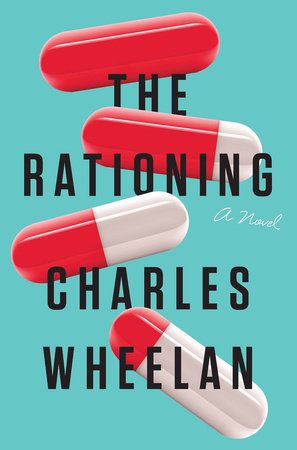What's Your Life Worth?: Health Care Rationing...Who Lives? Who Dies? Who Decides?
Es mostren les entrades ordenades per rellevància per a la consulta rationing. Ordena per data Mostra totes les entrades
Es mostren les entrades ordenades per rellevància per a la consulta rationing. Ordena per data Mostra totes les entrades
26 de setembre 2021
04 de juny 2011
Raonable i necessari
Aquesta vegada el Journal of Economic Perspectives ve carregat de valent. Molts temes d'interès relacionats amb la salut.
Avui em referiré a l'article d'en Chandra, Jena i Skinner sobre efectivitat comparada. El text s'ha de llegir sencer i destacaria l'elevada expectativa que dispositen en l'avaluació de l'efectivitat comparada malgrat no hi hagi cost-efectivitat. Comparteixo totalment la seva perspectiva.
Aquesta és la seva posició:
Avui em referiré a l'article d'en Chandra, Jena i Skinner sobre efectivitat comparada. El text s'ha de llegir sencer i destacaria l'elevada expectativa que dispositen en l'avaluació de l'efectivitat comparada malgrat no hi hagi cost-efectivitat. Comparteixo totalment la seva perspectiva.
Aquesta és la seva posició:
We argue that comparative effectiveness research still holds promise. First, it sidesteps one problem facing cost-effectiveness analysis—the widespread political resistance to the idea of using prices in health care. Such resistance is not just from political interest groups, but also from voters, who even in lab settings often dislike rationing based on cost effectiveness (Nord, Richardson, Street, Kuhse, and Singer, 1995). Second, there is little or no evidence on comparative effectiveness for a vast array of treatments: for example, we don’t know whether proton-beam therapy, a very expensive treatment for prostate cancer (which requires building a cyclotron and a facility the size of a football fifi eld) offers any advantage over conventional approaches. Most drug studies compare new drugs to placebos, rather than “headto- head” with other drugs on the market, leaving a vacuum as to which drug works best (Nathan, 2010). Simply knowing what works and what doesn’t will improve productive effifi ciency by shedding medical practices that are unsafe at any price.Aquí no tenim ni això encara que la llei tímidament demana avaluar utilitat terapèutica i ningú es preocupa per ara d'aplicar-la. Cal trobar un patró per mesurar aquelles prestacions que són raonables i necessàries.
29 de juliol 2018
Who should get treatment?
Who should receive treatment? An empirical enquiry into the relationship between societal views and preferences concerning healthcare priority setting
The concern for an equitable and fair allocation of healthcare resources requires a prioritisation approach. Otherwise we are going to live in an arbitrary and opaque world.
An article from the Netherlands explains what people think about three perspectives:
PS. Still waiting for the book:Rationing and Resource Allocation in Healthcare: Essential Readings
The concern for an equitable and fair allocation of healthcare resources requires a prioritisation approach. Otherwise we are going to live in an arbitrary and opaque world.
An article from the Netherlands explains what people think about three perspectives:
The view “Equal right to healthcare” comprises an egalitarian view on health and healthcare. People with this view consider access to healthcare a basic human right. Everyone is equal, hence has an equal right to healthcare. According to people with this view, prioritisation should solely be based on the need for care and prioritisation based on patient, disease, and intervention characteristics, such as the effect of treatment, is opposed. What is considered to be “the right care” is a matter of personal concern for patients and, according to people with this view, patients should be supported in their treatment choices regardless of the costs.And the result is:
The view “Limits to healthcare” comprises a view with a strong concern for providing “the right care” for patients. People with this view consider health-related quality of life to be an important outcome of treatment. According to people with this view, providing the right care may imply refraining from (life prolonging) treatment. People with this view do not consider cost-effectiveness to be an important criterion for priority setting, although they do consider it important to make good use of money. Hence, providing treatments that generate minimal benefits should be avoided. Priority setting based on patient characteristics is rejected, with an exception made for lifestyle. According to people with this view, patients who are culpable of their own disease should receive lower priority and prevention should receive higher priority in allocation decisions.
The view “Effective and efficient healthcare” comprises a utilitarian view on health and healthcare. People with this view consider it important to generate as much health for society as possible given the budget constraint, and consider a patient’s capacity to benefit from treatment important when setting priorities. Although people with this view focus on the cost-effectiveness of treatments, they do believe it is not possible to “put a [fixed] price on life”. The value of health benefits depends on circumstances and patient characteristics, such as age and culpability, and hence these should be taken into account in priority setting.
The majority of respondents was matched to the view “Equal right to healthcare” (64.5%), followed by “Limits to healthcare” (22.5%), and “Effective and efficient healthcare” (7.1%). A minority of respondents (5.9%) could not be matchedMy impression is that we change such criteria according to the exact setting we are in a precise moment. That's why beyond societal criteria we do need professional criteria. Sounds too easy to solve the prioritisation exercise according to three principles.
PS. Still waiting for the book:Rationing and Resource Allocation in Healthcare: Essential Readings
Juan Genovés exhibition at Marlborough gallery
27 d’agost 2019
14 d’octubre 2022
Pandemethics (3)
The Ethics of Pandemics. An Introduction
Table of Contents
1. Introduction: Why Ethics of Pandemics?
2. The General Principle of Pandemic Response
3. Rationing of Scarce Health Care Resources
4. Pandemics in an Unequal World
5. Restricting Freedom
6. Inducing Voluntary Behavioral Change
7. Moral Mathematics under Uncertainty.
Subscriure's a:
Missatges (Atom)


